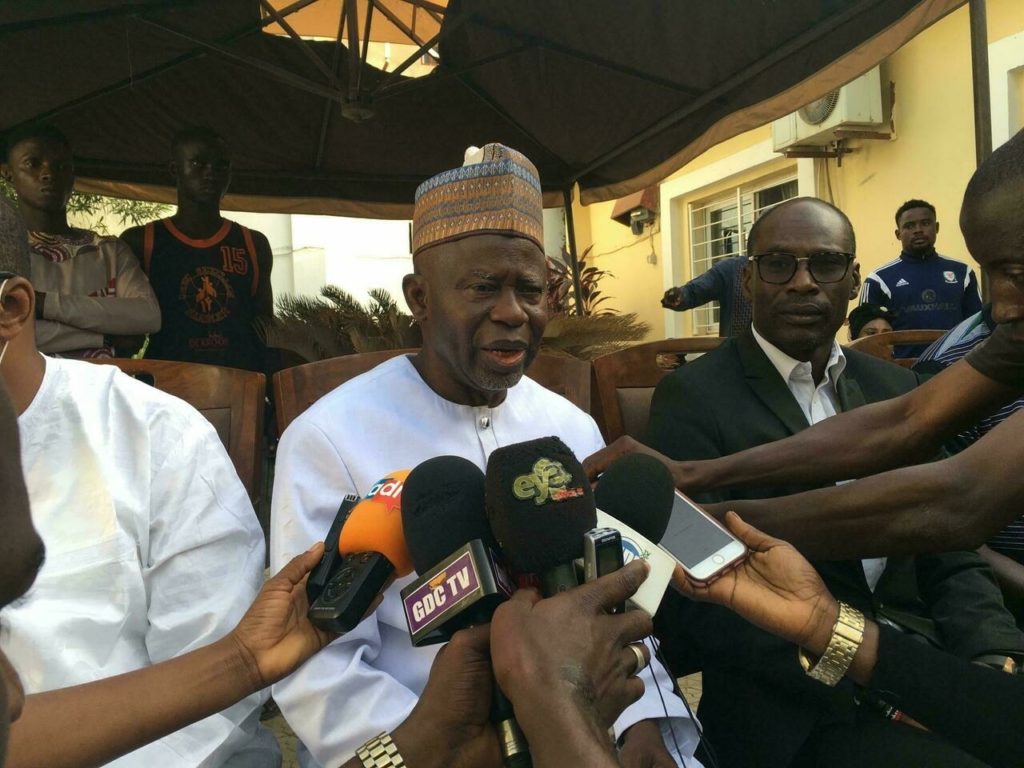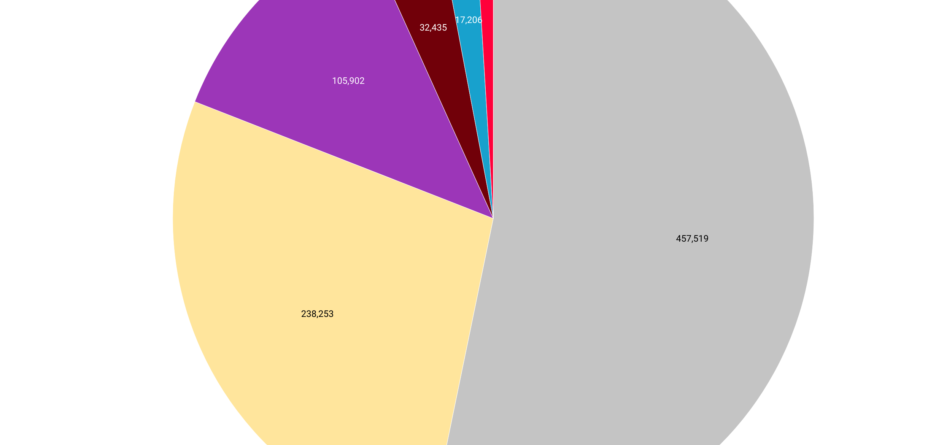Gambians renew President Barrow’s mandate ‘free and fair polls’, but opposition do not accept defeat
The Independent Electoral Commission has declared incumbent Adama Barrow as winner of the presidential elections held over the weekend. But three of the five opposition contenders, including his main rival Ousainou Darboe, had rejected the results in polls that have been judged as free, fair, and transparent.
“I am going to win with the biggest landslide in history,” Barrow told journalists after casting his vote Saturday morning, before going on to win 457,519 votes, representing 53 percent of votes cast. His nearest rival Ousainou Darboe scored 238,253 votes, representing 27.7 percent of the votes cast.
This is the second biggest presidential election victory in recent history as Jammeh still leads with his 72 percent – 470,550 votes in 2011.
Polls had closed after nine hours of voting across the country on Saturday. The results were progressively announced from midnight until Sunday at 9pm when the declaration was made. It was a record, impressive turn out at the polls with 859,567 votes cast out of 962 157 registered voters, representing 89% turnout.

Celebrations are underway across the country as supporters of Barrow filled the streets. “Barrow is a man of peace and deserves another term,” said Ebrima Ceesay, a businessman found celebrating in the streets, adding that Barrow has improved the conditions of roads in his native Basse region.
Speaking to thousands of jubilant supporters that gathered at the July 22nd Square, Barrow said: “I am a lucky person to be chosen by you. I sincerely assure each and everyone of you that I will do all I can and utilize every resources at my disposal to make Gambia a better place.”
Disputed results

Meanwhile, the opposition said the election was marred with irregularities but fell short of providing any evidence.
“At this point in time, we reject the results thus far announced by the IEC,” Darboe said in a statement jointly signed with Essa Faal and Mama Kandeh, adding that they will investigate the matter.
He added: “We reserve the right to embark on any lawful course of action the situation requires. To this end, all options are on the table.”
However, Essa Faal would make a u-turn on Monday, announcing that he had telephoned Barrow to congratulate him on his victory.
Two of the opposition contenders, PDOIS led by Halifa Sallah and NUP led by Abdoulie Jammeh have not challenged the results.
“The process was transparent,” said Alagie Kurang, one of the presidential aspirants who backed Sallah. “This was the system used to remove a dictator. I don’t see how it can be discredited now.”
Halifa himself, who came out to comment on the polls on Monday has conceded defeat, saying “why they voted the way they voted is not something I have the prerogative to inquire into. Their vote is their vote. It is for us to accept their decision.”
Abdoulie Jammeh has also issued a statement on Sunday, conceding defeat.
Election observers and civil society organisations have so far given the polls the clean bill of health. The domestic observers have issued a joint statement, stating that the election was free and fair.
“From our preliminary findings, the election is transparent,” said Marr Nyang, executive director of Gambia Participates, a civil society organisation that monitored and observed the election.
“Indeed,” he said when asked whether he could confirm that Barrow has won the elections.
The EU Election Observer mission says the overall conduct of voting was positively assessed. “The overall assessment of the counting process was good, and the transparency of counting was assessed positively,” it says in a statement.
The African Union election observer mission gives a similar assessment, noting that ‘based on the election was conducted in a peaceful and democratic political environment and conforms to national and international standards.’
What next for opposition
Six candidates vied for the top job in the country’s post-dictatorship presidential elections. It was widely regarded as the most consequential election in recent history. Many say it a test on the country’s new-found democracy.
“Victory for Barrow is bad for democracy,” said Essa Njie, a political science lecturer at the University of the Gambia. “It is a sign of self-perpetuating rule.”
Barrow was backed by an opposition coalition to victory in 2016. He agreed to preside over a three-year transition government. But the former real estate manager had reneged on the promise and launched his political party two years ago to seek re-election. He is backed by seventeen political parties and independent candidates this time round.
His main rival, Ousainou Darboe of the United Democratic Party (UDP) was his political godfather and former vice president. The veteran lawyer and politician was making his bid at the presidency for the fifth time – four times under President Jammeh.
The victory in the polls for Barrow could mean end of an era for two most prominent political figures that have dominated opposition politics will for more than two decades. Halifa Sallah had announced after his nomination that he would no longer bid for presidency if he loses and Ousainou Darboe, 73, is highly likely to stand-down from here.

